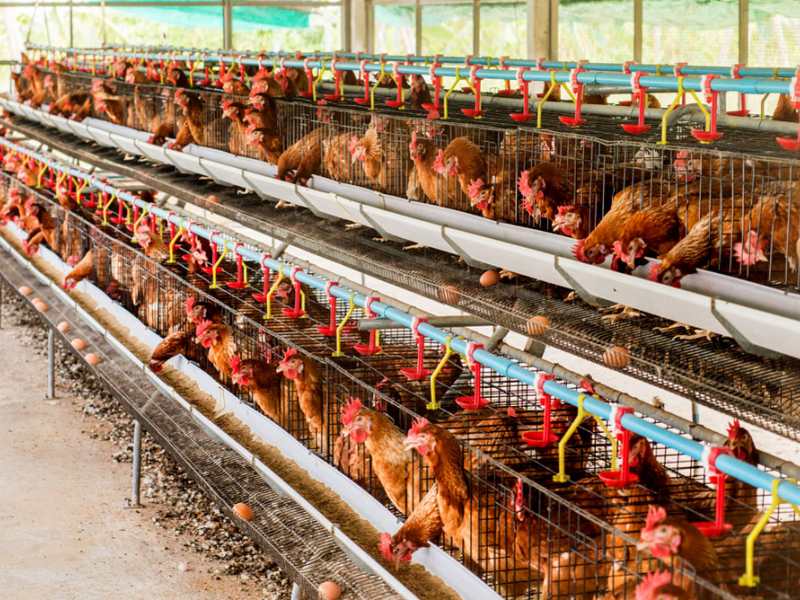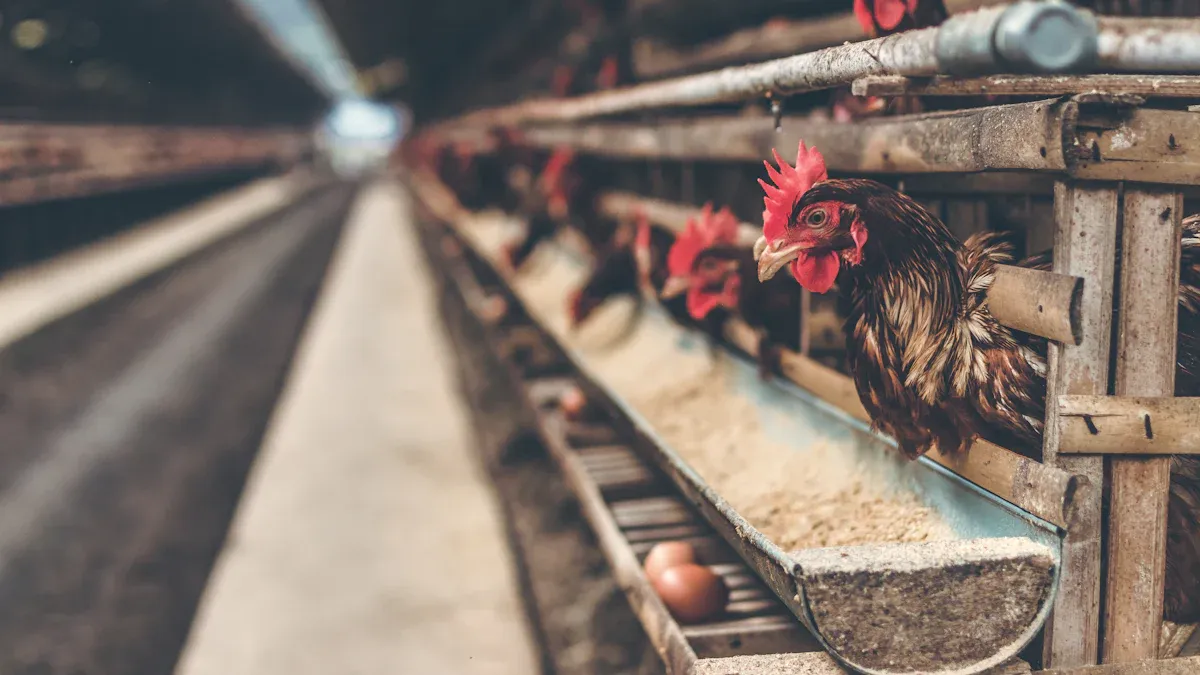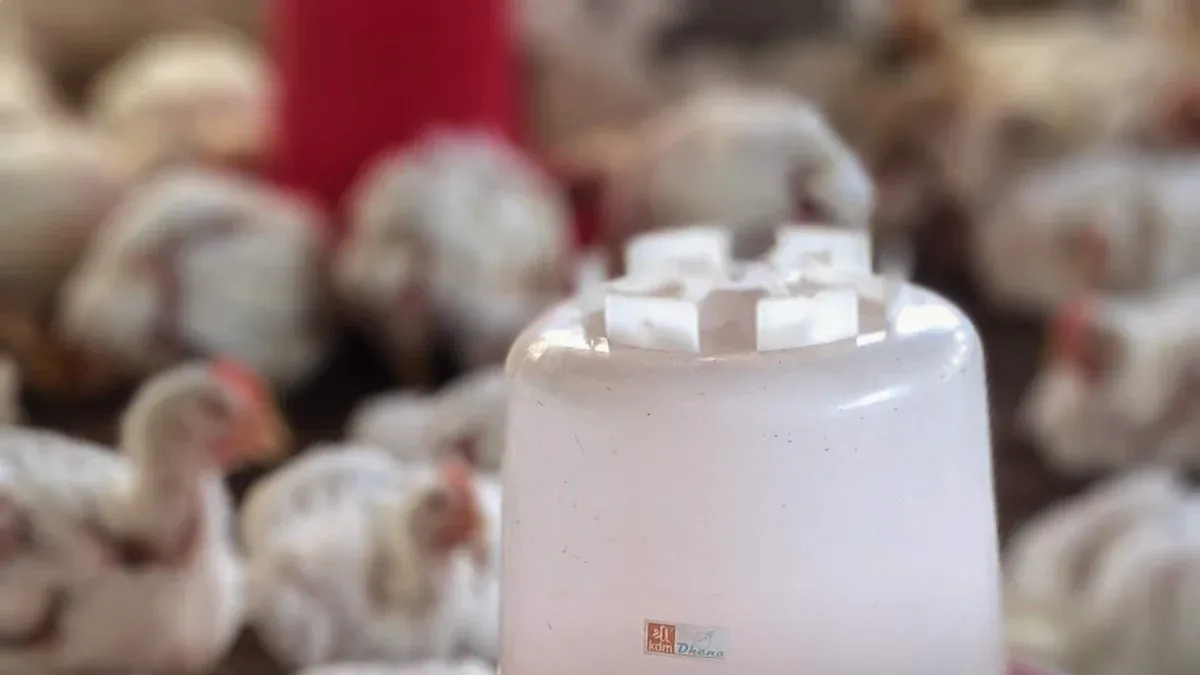
Top 10 Tips for Starting a Chicken Layer Farm in the Philippines
Raising chickens for eggs in the Philippines is becoming increasingly popular. Many people are looking for fresh eggs as they are a staple in daily meals. This business can be quite profitable and also contribute positively to the community. To succeed, it’s essential to plan effectively and tackle any challenges that arise. Understanding how to start a chicken layer farm in the Philippines with strategic steps can lead to long-term benefits.
How to Start a Chicken Layer Farm in the Philippines
Learn the basics of raising chickens
To start a chicken layer farm, you need basic knowledge. Learn about a chicken’s life cycle, their food needs, and common illnesses. Chickens must be cared for to stay healthy and lay eggs. For example, layers need food with calcium and protein for good egg production. Also, understand chicken behavior, like their need for nests and perches. This helps you make a safe and productive space for them.
Study the local egg market and demand
Before starting, check the local market for egg demand. Know how many people live nearby, who your competitors are, and egg prices. Visit markets and talk to sellers to learn more. For example, I found brown eggs were liked more in one area, so I chose chickens that lay brown eggs. Knowing your market helps you meet what people want.
Get advice from farmers or join training programs
Talking to experienced farmers is very helpful. Visit farms to see how they work and ask questions. Many farmers share tips and ideas. You can also join workshops or training programs. These teach about stopping diseases, feeding chickens, and running a farm. Learning from others can help you avoid mistakes and succeed faster.
Choose the Right Location
Close to markets and suppliers
Location matters a lot for chicken farms. Being near markets saves time and money. It also keeps eggs fresh when delivered quickly. Buying feed and supplies nearby avoids delays. Pick a spot close to both markets and suppliers for smooth operations.
Follow zoning and local rules
Check local rules before starting your farm. These laws decide where farms can be built. They also prevent problems with neighbors. Visit the local office to get permits and licenses. This step avoids legal trouble and helps your farm start right.
Pick land with good drainage and airflow
The land you choose affects your chickens’ health. Choose a place where water drains well after rain. Good airflow keeps chickens healthy and stops diseases. Make sure there’s enough space for future growth. Always check the land carefully before deciding.
Plan Your Budget
List startup costs like land, tools, and chickens
Planning your budget is very important for success. Start by listing big expenses. Buying or renting land is usually the biggest cost. You’ll also need tools like feeders, waterers, and nesting boxes. Buying chickens is another major expense. Good-quality layer chickens may cost more but give better results. Use a simple chart or spreadsheet to track these costs. This helps you spend wisely and avoid going over budget.
Include regular costs like feed, water, and workers
Running a chicken farm means paying for things regularly. Feed is the biggest cost because chickens need good food to lay eggs. Water is also very important, especially in hot weather. If your farm is big, you may need workers. They can help with feeding, cleaning, and collecting eggs. To save money, buy feed in bulk and watch how much you use. This keeps costs low and your farm running well.
Save money for emergencies and surprises
Problems can happen anytime. Diseases, broken tools, or higher feed prices can cause trouble. Always save some money for emergencies. This extra money helps fix problems fast without stopping your farm. For example, when a storm broke my chicken coops, I used saved money to fix them quickly. Being ready for surprises is key to staying successful.
Build Proper Housing

Make coops with enough space and good airflow
Chickens need room to move to stay happy. Give each chicken 1.5 to 2 square feet inside the coop. This helps them stay calm and lay more eggs. Airflow is also very important. Without it, heat and moisture can make chickens sick. Add windows or vents on opposite sides for fresh air. Cover these openings with wire mesh to keep predators out.
Pick strong materials for the tropical weather
The Philippines has hot and rainy weather, so use sturdy materials. Treated wood or metal frames work well for the coop’s structure. For the roof, use galvanized iron sheets to handle heavy rain. Raise the floor to avoid flooding during storms. Strong materials cost more at first but save money later by lasting longer.
Add nesting boxes and perches for chickens
Hens need nesting boxes to lay eggs. Use one box for every four or five chickens. Each box should be 12×12 inches and have soft bedding like straw or rice hulls. Chickens also like to roost at night. Install wooden perches 2-3 feet above the ground. This keeps them safe from pests and comfortable.
Select the Right Breed
Pick breeds that lay many eggs and live long
Choosing the right chicken breed is very important. Some breeds lay lots of eggs regularly. For example, White Leghorns can lay up to 300 eggs a year. They are efficient and great for egg production. Rhode Island Reds are strong and handle different weather well. This makes them perfect for the Philippines. Long-living breeds save money because they need fewer replacements. They also keep your farm earning steadily.
Buy chickens from trusted sellers
Healthy chickens are key to a good farm. Always buy from sellers with a strong reputation. Trusted sellers give vaccinated chickens that are free of diseases. Visit their farm to check how they raise the chickens. Clean and healthy conditions mean better birds. Don’t buy from unknown sellers, as sick chickens can cause big problems.
Check chickens for health before buying
Look closely at chickens before bringing them to your farm. Healthy chickens have shiny feathers, clear eyes, and act lively. Their nostrils should be clean, and legs free of swelling or sores. Avoid chickens that look sick or tired. Checking their health early can stop future issues.
Invest in Quality Equipment
Choose feeders and waterers that reduce waste
Using good feeders and waterers saves money and avoids waste. Pick feeders that stop chickens from spilling food. For example, trough feeders with guards keep feed inside. They prevent chickens from scratching and wasting it. For water, nipple drinkers are a great choice. These give water only when chickens peck them. This keeps water clean and stops spills.
Use automated systems for better efficiency
Automatic tools can make farm work easier. Automatic feeders and waterers are helpful for big farms. They ensure chickens always have food and water, even if you’re away. Conveyor belts for eggs save time and prevent breaks. These tools cost more at first but save money later by reducing labor and boosting productivity.
Pick equipment that’s easy to clean
Clean equipment is very important for healthy chickens. Choose stainless steel feeders and waterers. They last long and are easy to clean. Avoid tools with tiny parts that trap dirt. Also, have cleaning brushes and disinfectants ready. Clean equipment stops diseases and keeps chickens healthy.
Focus on Proper Feeding

Give chickens a balanced diet for better egg production
Chickens need the right food to lay eggs regularly. I make sure my layers eat food with protein, calcium, and nutrients. Protein helps make eggs, and calcium makes strong eggshells. I use commercial feeds because they are made for layers’ needs. To add more calcium, I mix in crushed oyster shells or limestone. Without good food, chickens lay fewer eggs or weak ones. Watching their diet closely keeps egg quality high.
Buy local feed to save money
Getting feed from local suppliers has cut my costs. I buy grains like corn and rice bran nearby. These are cheap and easy to find in the Philippines. Mixing them with commercial feed saves money but still gives good nutrition. Buying local also helps the community. Always check the feed quality before buying to ensure it’s good for your chickens.
Add vitamins and minerals when needed
Sometimes chickens need extra vitamins and minerals to stay healthy. I give supplements during hard times, like hot weather or molting. Vitamin D helps chickens use calcium better, and B vitamins give them energy. I mix these into their water or feed so they eat them easily. Adding supplements has kept my chickens healthy and laying eggs.
Maintain Hygiene and Biosecurity
Keep coops and tools clean often
Cleaning coops and tools is very important. Dirty areas bring pests and spread sickness. This can hurt chickens and lower egg production. I clean coops every week by removing old bedding and scrubbing surfaces. I also disinfect the area to kill germs. Feeders and waterers are washed daily to stop mold and bacteria. Using a gentle disinfectant keeps chickens safe from harmful chemicals.
Take steps to stop diseases
Stopping diseases starts with biosecurity. Only important workers can enter the farm. Visitors must wear protective clothing. Footbaths at entry points clean shoes and stop germs. I vaccinate chickens for common diseases like Newcastle disease. Regular health checks help find sickness early so I can act quickly.
Teach workers good hygiene habits
Workers must follow hygiene rules to keep chickens healthy. I teach them to wash hands before and after touching chickens. They also clean tools after using them. Workers wear clean uniforms and gloves when needed. Training sessions help them learn the best ways to stay clean. This keeps the farm running well.
Comply with Local Regulations
Get the permits and licenses you need
Starting a chicken farm needs the right paperwork. Always get permits before starting your farm. Visit the local government office to ask about requirements. Usually, you’ll need a business permit, barangay clearance, and an environmental certificate. These prove your farm follows the law.
Handle waste and care for chickens properly
Managing waste is important for the environment and your farm’s image. Set up a system to handle waste that follows local rules. For example, turn chicken manure into compost for fertilizer. This cuts waste and earns extra money.
Caring for chickens is just as important. Give them clean water, good food, and safe shelter. Follow rules to keep chickens stress-free. Healthy chickens lay better eggs, helping your farm succeed.
Keep up with changes in local laws
Rules can change over time. Stay informed by joining farmer groups or attending seminars. These groups share updates on new laws. Following rules avoids fines and builds trust with buyers and neighbors.
Monitor and Improve Farm Operations
Watch egg production and chicken health
I always check how many eggs my chickens lay. Writing down daily egg counts helps me see patterns. If egg numbers drop, it might mean stress, sickness, or bad food. I use a notebook or a simple app to track eggs. I also note their size and quality. This helps me decide if I need to change food or fix the coop.
Keeping chickens healthy is just as important. I look for signs like tiredness, no appetite, or strange actions. Regular checkups and vaccines keep them in good shape. If I see a problem, I call a vet quickly to stop diseases from spreading.
Find ways to save money and work better
Running a farm well means checking costs often. I look for ways to save money without lowering quality. Buying feed in large amounts has saved me a lot. I also use energy-saving lights in the coops to cut power bills.
Making work easier helps the farm run smoothly. Using machines for feeding and egg collecting saves time and money. I train workers to do different jobs, which keeps things moving and reduces delays.
Learn about new farming ideas and tools
Farming changes fast, so learning new things is important. I go to farm fairs and classes to see the latest tools. These events show me things like machines that control coop temperature better.
I also read farm magazines and join online groups. These give tips on new trends and smart ways to farm. Talking to other farmers has helped me solve problems and get new ideas.
Starting a chicken farm in the Philippines can be exciting. Follow important tips like picking a good location and budgeting well. Keeping your farm clean is also very important for success. Begin by learning how to start a chicken farm properly. With good planning, you can earn money and help the environment.
FAQ
What is the best breed for egg production in the Philippines?
White Leghorns are great for laying many eggs. They can produce up to 300 eggs each year and do well in warm weather.
How much space do chickens need in their coop?
Chickens need 1.5 to 2 square feet each. This gives them enough room to stay happy, calm, and lay eggs well.
Can I use chicken manure as fertilizer?
Yes, chicken manure is a great natural fertilizer. Compost it first to remove bad smells and germs before using it on plants.
